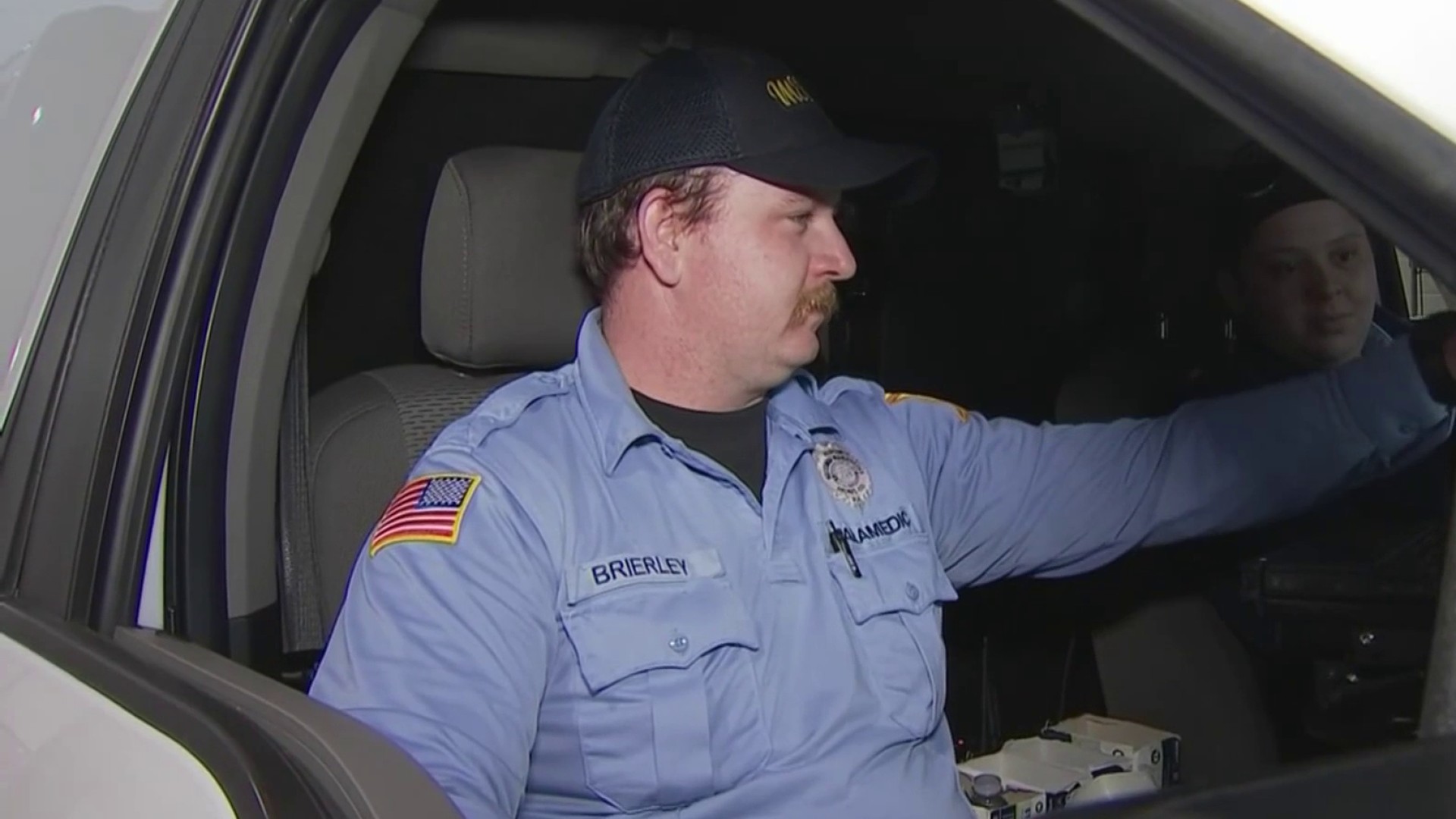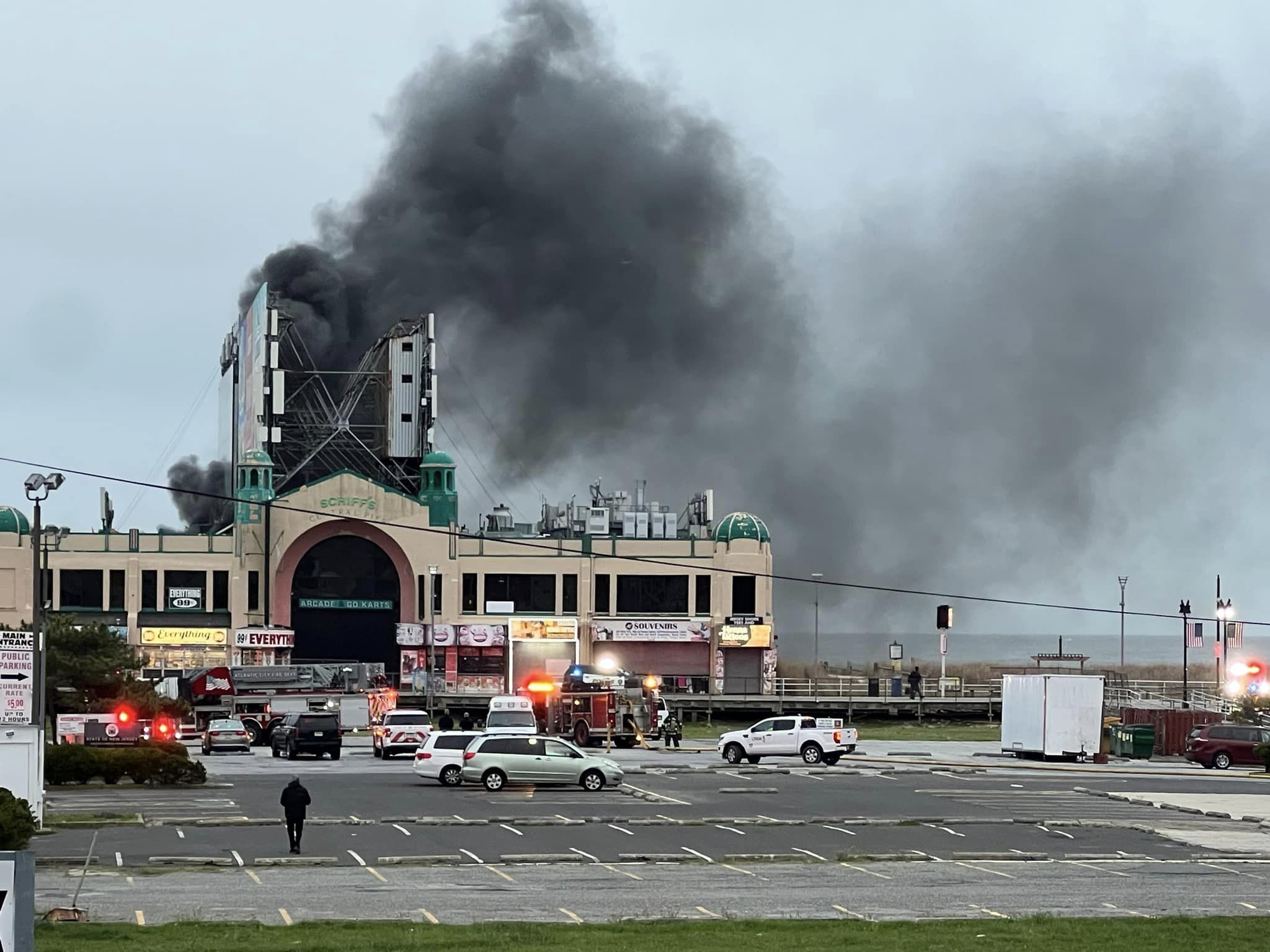Eddie Sullivan should have been preparing for his upcoming senior year of high school. Instead, the 17-year-old from Delaware County, Pennsylvania, nearly died as a result of vaping, his mother told NBC10.
“I just did it because everyone was doing it,” Sullivan said.
He was rushed to a local children’s hospital a few weeks ago after complaining of chest pain, coughing, shortness of breath and difficulty breathing. He said it felt like only one lung was working. Sullivan’s doctor said it could have been much worse.
“He was very much on the borderline of getting sedated or put into a coma,” Dr. Nick Slamon, fellowship director for pediatric critical care at Nemours Alfred I. duPont Hospital for Children in Wilmington, Delaware, said. “He was very sick.”
The labored breathing was a result of something called chemical pneumonitis, or inflammation of lung tissue, according to Slamon. To help Sullivan breathe, he received mechanical ventilation through a mask.
"Vaping is dangerous because ... it super heats liquid into vapor and that super-heated vapor may transform some of the chemicals into something that is toxic," Slamon said. "It's not a healthy alternative to smoking."
Sullivan spent 14 days in the hospital, his football season over before it even started. Several weeks later, he still gets winded walking up a flight of stairs, he said.
Local
Breaking news and the stories that matter to your neighborhood.
Sullivan’s mother, Geri Sullivan, said at first she was angry with her son for vaping but now hopes it will serve as a lesson to other teens.
“Understand this is something that’s a little bit out of control right now,” she said. “It needs to be stopped.”
Sullivan is just one of several recent medical emergencies involving popular vaping or electronic smoking devices.
Last week, officials from the Centers for Disease Control and Prevention said they are looking at 215 possible cases across 25 states. All the cases involve teens or adults who have used e-cigarettes or other vaping devices. Symptoms of lung disease include coughing, shortness of breath, chest pain, fatigue, nausea and vomiting.
The CDC and Food and Drug Administration warned the public not to buy vaping products off the street. And officials have recommended people concerned about the health risks "consider refraining from using e-cigarette products."
Health and Human Services Secretary Alex Azar said in a statement the government is "using every tool we have to get to the bottom of this deeply concerning outbreak."
E-cigarettes generally heat a flavored nicotine solution into an inhalable aerosol. The products have been used in the U.S. for more than a decade and are generally considered safer than traditional cigarettes because they don't create all the cancer-causing byproducts of burning tobacco.
But some vaping products have been found to contain other potentially harmful substances, including flavoring chemicals and oils used for vaping marijuana, according to experts.
Michigan Gov. Gretchen Whitmer moved Wednesday to make her state the first to ban flavored electronic cigarettes, accusing companies of using candy flavors and deceptive advertising to "hook children on nicotine."
New York last November began taking steps to bar the sale of flavored e-cigarettes but withdrew proposed rules to allow more time for legal review.
The federal government and states ban the sale of vaping products to minors, but government survey figures show that last year, one in five U.S. high school students reported vaping in the previous month. Top government health officials, including the surgeon general, have flagged the trend as an epidemic.
Whitmer's announcement drew praise from public health groups and criticism from organizations that advocate for vaping.
"This shameless attempt at backdoor prohibition will close down several hundred Michigan small businesses and could send tens of thousands of ex-smokers back to deadly combustible cigarettes," said Gregory Conley, president of the American Vaping Association.
"These businesses and their customers will not go down without a fight. We look forward to supporting the lawsuits that now appear necessary to protect the right of adults to access these harm reduction products."
He said the ban would create a "massive" black market. He blamed the recent spate of lung illnesses on illegal vape pens that contain THC, the compound that gives marijuana its high.
Health experts say nicotine is harmful to developing brains, and some researchers worry that addicted teens will eventually switch from vaping to smoking.
The rise in teen vaping has been driven mainly by flavored cartridge-based products such as Juul. The rechargeable, odorless device can be used discreetly in bathrooms, hallways and even classrooms.
Juul's top executives have disputed allegations that they have marketed their products to teens, declaring that they have taken unprecedented steps to combat underage use of its e-cigarettes. The company has shut down its Facebook and Instagram pages and pulled its fruit- and dessert- flavored pods out of retail stores. Juul also backs federal legislation to raise the minimum age to purchase all tobacco products, including e-cigarettes, to 21 nationwide.
Nearly 80% of underage teenagers who use e-cigarettes and other tobacco products cited flavors when asked why they took up the habit, according to government research.
E-cigarettes, which have been available in the U.S. since about 2007 and have grown into a more than $6 billion-a-year industry, are battery-powered devices that typically heat a flavored nicotine solution into an inhalable aerosol. Juul, which launched in 2015, now controls roughly three-quarters of the U.S. retail market for e-cigarettes.



